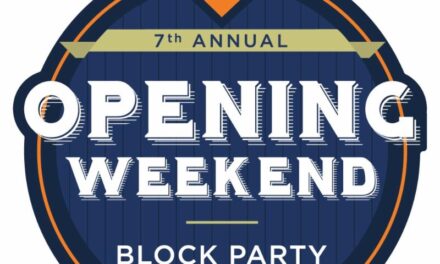By Danny R. Johnson
NEW YORK, NY–Through much of its history, jazz made avid converts with the simple promise of undying excitement, whether maximized by throbbing rhythms, bloodcurdling high notes, violent polyphony, layered riffs, hyperbolic virtuosity, fevered exchanges, or just simply carnal funk. Alas, my jazz purists welcome to the world of Theo Croker, the young lion trumpeter who goes by the title “Dark Funk” or the AfroPhysicist, which is the title of his latest CD on Dee Dee Bridgewater’s DDB Records via Sony Music Masterworks/Okeh Record label.
Croker’s new album, AfroPhysicist, made its professional debut on May 20, 2014 and was superbly produced by Bridgewater. This is Croker’s third album and the inaugural release on Bridgewater’s label. The 12 captivating selections on this album literally interpolate performances that marry startling confidence, crying emotion, and insouciant swing.
When Croker met Bridgewater, it was October of 2009 during the Shanghai Jazz Festival, where he was playing in the big band that backed her. The two hit it off at an after-party jam and met for lunch during her next visit. When Bridgewater inquired about the music the trumpeter was working on, Croker handed over his iPod and told her to listen for herself. By summer 2010, they were in discussions about recording an album. “The first thing Dee Dee said was, ‘We are not doing a jazz record,'” Croker says laughing. “It was perfect. I already knew who I was and I had no inhibitions.” Bridgewater is a three-time Grammy Award winning singer-songwriter, as well as a Tony Award – winning stage actress and host of National Public Radio’s syndicated radio show JazzSet with Dee Dee Bridgewater. In addition to her musician duties, she is a United Nations Ambassador for the Food and Agriculture Organization.
AfroPhysicist features Croker’s core group: keyboardist Sullivan Fortner, wind and reed man Irwin Hall, drummer Karriem Riggins, acoustic/electric bassist Michael Bowie and guitarist David Gilmore, with other horns and specialists. One standout guest is vibraphonist Stefon Harris who brings his unfiltered spell casting to a cover of Stevie Wonder’s “Visions.” “In another life, maybe I was a singer,” Croker muses. “I gave up on that dream a long time ago but felt I could really convey the meaning of Stevie’s deeply relevant lyric through my horn. His Innervisions album (1973) was a huge influence for me, flow wise.”
Croker also persuaded friend and trumpet veteran Roy Hargrove to guest on a song of his own composition, “Roy Allan” (which Hargrove dedicated to his father). Hargrove originally recorded the tune instrumentally for his 1995 classic album Family, but sang his accompanying lyric only occasionally in concert…until now. Croker also pays tribute to South African trumpeter Hugh Masekela by recording the meditative Serengeti slink of “Bo Masekela,” composed by the great Caiphus Semenya in 1965 in honor of Masekela and his then-wife, Miriam Makeba. A souring relationship inspired Croker’s own “It’s Not You, It’s Me (But You Didn’t Help),” featuring synchronistic interplay between Croker and Hall on alto flute.
According to trumpeter/composer Croker’s press release he comes “straight out of Leesburg, Florida by way of Shanghai, China, this bold young soul-jazz newcomer, grandson of New Orleans trumpet legend Doc Cheatham is fortified by tradition with no lack of contemporary electricity to propel him into the future.”
Croker is one young cat who could have come straight off another planet because his sounds on this AfroPhysicist album are definitely out-of-this-world! This album has the showiest expressions of passion frequently border on outright pandering, but immoderation of that sort is a healthy expression – it tends to proliferate in a milieu where authentic excitement also flourishes.
Yes, it is true that we still have great jazz trumpeters out there with the likes of Wynton Marsalis, Roy Hargrove, Arturo Sandoval, Terence Blanchard, Nicholas Payton, Ingrid Jensen, and the ever so prolific Christian Scott. And there are many more — all of these musicians are great in their own unique way; but no one personifies the excitement of avant-garde jazz fusion better than Theo Croker.
AfroPhysicist personifies that excitement due to the music’s volatility and joy, and Croker’s trumpet electrifies the jazz skies, transforming its fevers with generosity, cunning, and unconstrained elation.
Ideas come fast to Theo. On the opening track, Alapa (For Doc), an original composition dedicated to his legendary grandfather Doc Cheatham, Croker starts off with a few buoyant, tinkling notes, then suddenly scatters them into a jagged, descending riff, surging along it at breakneck speed flowing into the adjoining track Realize. Then, quickly interweaving a flurry of growling notes with an exciting upper-octave peal, he is swept up by a new set of ideas that carry him to a level of indefatigably modal mixtures.
It should be noted that the late Doc Cheatham (1905-1997) was a true phenomenon trumpet player. Cheatham actually improved as a soloist while he was in his seventies, and he was still hitting solid high notes when he was 91! No trumpet player over the age of 80 in any style of music was ever on Cheatham’s level. Now we know where Theo Croker got his chops from – must be in the genes.
Croker’s fluency as a soloist is drawing comparisons to the great Freddie Hubbard and Roy Eldridge. Premature, of course, but it’s been a long time since jazz produced a trumpeter with Croker’s fearless improvisational skill and mature melodic sense. At 28, Croker’s explosive and fiery style will capture the attention of jazz lovers the world over and rapidly develop plenty of well-deserved name recognition.
Danny R. Johnson is San Diego County News’ Jazz and Pop Music Critic.
[contextly_auto_sidebar id=”oKVaOTPQP497JZ5gvRYvwLmccANZ490J”]









